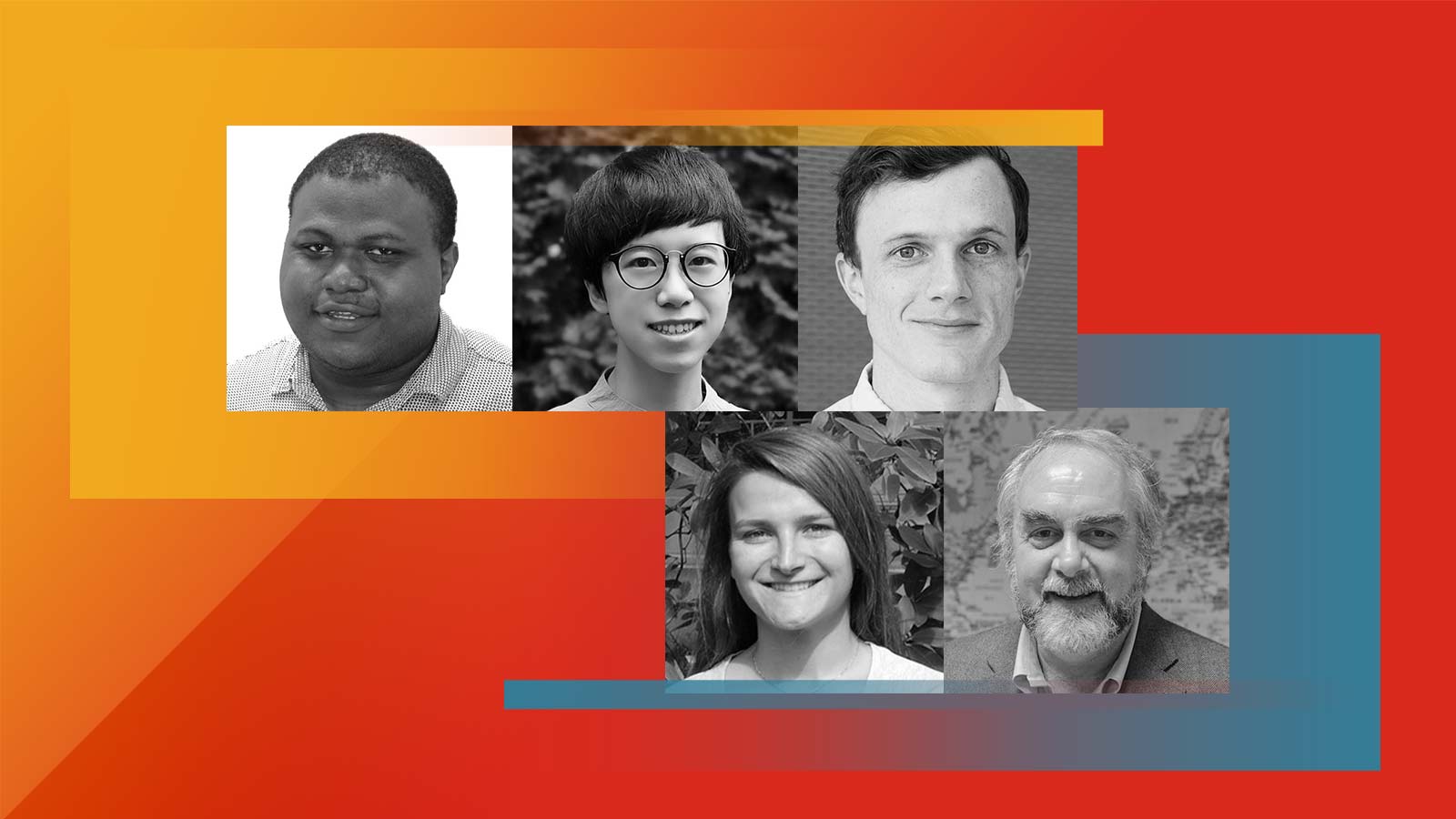By: Kathleen Sandusky
13 Feb, 2024

Today CIFAR announced five new Canada CIFAR AI Chairs who will join the more than 120 Chairs already appointed at Canada’s three National AI Institutes (Amii in Edmonton, Mila in Montréal, and the Vector Institute in Toronto).
Also announced today was the renewal of funding for three Canada CIFAR AI Chairs appointed in the first cohort of appointments (2018). The renewed Chairs are: Martha White, from Amii and the University of Alberta, and two Chairs from Mila and McGill University, Joelle Pineau and Reihaneh Rabbany.
“These new and renewed Canada CIFAR AI Chairs bring extraordinary expertise across a range of strategic domains and applications within the rapidly moving field of AI,” commented Elissa Strome, Executive Director of the Pan-Canadian AI Strategy at CIFAR. “As the science and application of AI continues to advance rapidly, the ability to attract and retain great researchers who are advancing diverse aspects of the field will be critical to Canada’s leadership in developing and deploying responsible AI. It’s a testament to Canada’s international reputation that these outstanding academics have chosen Canada to advance their careers and research, while training the next generation.”
The Canada CIFAR AI Chairs program is a cornerstone of the Pan-Canadian Artificial Intelligence Strategy. Launched in 2017, it was the world’s first national AI strategy, with a focus on recruiting and retaining AI talent in Canada and building rich, interconnected AI ecosystems in our three major centres. In 2022, the Pan-Canadian AI Strategy was renewed and expanded to include an additional pillar of advancing commercialization opportunities for Canadian-led AI.
The five newly-appointed Chairs will continue to advance leading-edge research across wide-ranging fields of AI inquiry, from mathematics, statistics and probabilistic reasoning; to ethical and trustworthy AI; digital humanities; machine learning for health care, climate mitigation and scientific advancement; and natural language processing to advance AI for diverse languages.

Amii
University of British Columbia
Elina Robeva is an assistant professor at the University of British Columbia. In 2023 she was awarded the André Aisenstadt Prize for outstanding research results in pure or applied mathematics by a young Canadian mathematician. Robeva’s research lies at the intersection of mathematical statistics, machine learning, combinatorics, multilinear algebra, algebraic statistics, and applied algebraic geometry. Her group develops novel mathematical methods to investigate complex and overlapping data such as large climate data sets, to make reliable predictions and to better understand causal relationships.

Amii
University of Alberta
Geoffrey Rockwell is a professor of both digital humanities and philosophy at the University of Alberta. He studies video games, textual visualization, text analysis, ethics of technology and the ethics of artificial intelligence. He is the author of books and articles on sustainable research practices and human-computer interaction. With Stéfan Sinclair, Rockwell co-developed Voyant Tools, a suite of text analysis and visualization tools that has won international awards including the 2022 Antonio Zampolli Prize. He is now working on a book on dialogue and artificial intelligence that looks at the conversations we have about AI and the conversations we can have with the new chatbots like ChatGPT.

Mila
McGill University
David Ifeoluwa Adelani is an assistant professor in the School of Computer Science at McGill University. He advances natural language processing to develop machine learning models for under-resourced languages, such as African languages, Latin-American languages, and Indigenous languages. His group aims to improve access to information and enhance human-machine communication for these communities, for example in better automatic translation and text-to-speech services.

Vector Institute
University of British Columbia
Xiaoxiao Li is an Assistant Professor in the Electrical and Computer Engineering Department at the University of British Columbia, leading the Trusted and Efficient AI (TEA) Group, and an Adjunct Assistant Professor at the School of Medicine at Yale University. Li specializes in the interdisciplinary field of deep learning and biomedical data analysis. Her primary mission is to make AI more reliable and trustworthy, especially when it comes to sensitive areas like healthcare. Groundbreaking work from her team includes AI-driven analysis of diverse data including medical images (such as neuroimages and pathology slides), as well as molecular and clinical notes.

Vector Institute
University of British Columbia
Geoff Pleiss is an assistant professor in the Department of Statistics at the University of British Columbia. His research interests encompass a wide range of topics in machine learning, including deep learning, uncertainty quantification, probabilistic modeling, and Bayesian optimization. His group works to improve the accessibility and reliability of predictive machine learning for scientific discovery. He is also an avid open source contributor, having co-founded the GPyTorch, LinearOperator, and CoLA software libraries.
—–
The Pan-Canadian Artificial Intelligence Strategy at CIFAR drives cutting-edge research, trains the next generation of diverse AI leaders, and fosters cross-sectoral collaboration for innovation, commercialization and responsible AI adoption. Our three National AI Institutes – Amii in Edmonton, Mila in Montréal, and the Vector Institute in Toronto – are the vibrant central hubs of Canada’s thriving AI ecosystem. Funded by the Government of Canada, we’re building a dynamic, representative, and rich community of world-leading researchers who are creating transformative, responsible AI solutions for people and the planet.
The Canadian Institute for Advanced Research (CIFAR) is a Canadian-based global research organization that convenes extraordinary minds to address the most important questions facing science and humanity. We are supported by the governments of Canada, Alberta and Quebec, as well as foundations, individuals, corporations and Canadian and international partner organizations.